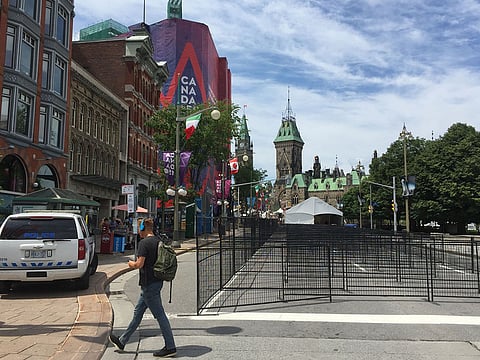The forging of a nation in 1867
Canada’s Confederation created the second largest country in the world

Dubai: Canada 150 celebrations are in honour of the founding of modern-day Canada forged by 36 men across all levels of society known as the Fathers of Confederation who inked the historic July 1, 1867 occasion into history.
In the lead-up to the first day of the Confederation, the men met in Quebec, London and Charlottetown from 1864 to 1867 to hammer out the unification of what was at the time the Province of Canada made up of Canada West (Ontario) and Canada East (Quebec) and Nova Scotia and New Brunswick.
The four areas would be later joined by regions of Canada to comprise today’s 10 provinces and three provinces, including Alberta (1905), British Columbia (1871), Manitoba (1870), Newfoundland Labrador (1949), Northwest Territories (1870), Nunavut (1999), Prince Edward Island (1873), Saskatchewan (1905) and Yukon (1898).
The confederation created the second-largest country in the world.
Here is a brief look at a handful of the Fathers of Confederation who were pivotal in creating unification, according to the Government of Canada.
Sir John A. Macdonald
John A. Macdonald was Canada’s first prime minister, and was knighted for his efforts in bringing about the confederation. His role in creating Canada and the realisation of his dream to build a transcontinental railway have fixed his place as a nation-builder in Canadian history.
Sir George-Étienne Cartier
George-Étienne Cartier was one of the most influential politicians of his generation. Together with John A. Macdonald, he was co-premier of the Province of Canada. He took part in the Charlottetown, Québec and London conferences, and was among the most ardent supporters of the confederation. As one of the primary architects of Canadian Confederation, Cartier fully deserves to be called a Father of Confederation.
Sir Oliver Mowat
Although he participated in the Québec conference, it was as premier of Ontario that Sir Oliver Mowat helped define the relationship between the provinces and the federal government. He was a champion of provincial rights and fought more than one battle with Canadian Prime Minister John A. Macdonald on this front.
Sir Charles Tupper
The longest-surviving Father of Confederation, Charles Tupper was leader of the Nova Scotia delegates at all three confederation conferences. In the years following union, he held a number of high political offices, including that of High Commissioner to London. He also holds the dubious distinction of being Canada’s shortest-serving prime minister.
Sir Samuel Leonard Tilley
Samuel Leonard Tilley was a New Brunswick politician who attended all three confederation conferences. He is believed to have suggested the name “Dominion” for the new country. In addition to two terms as the premier of New Brunswick, Tilley held the posts of minister of customs and minister of finance in the federal government. He also twice served as his province’s lieutenant-governor.
SOURCE: Profiles, photos, courtesy of Library and Archives Canada, www.collectionscanada.gc.ca
Sign up for the Daily Briefing
Get the latest news and updates straight to your inbox



